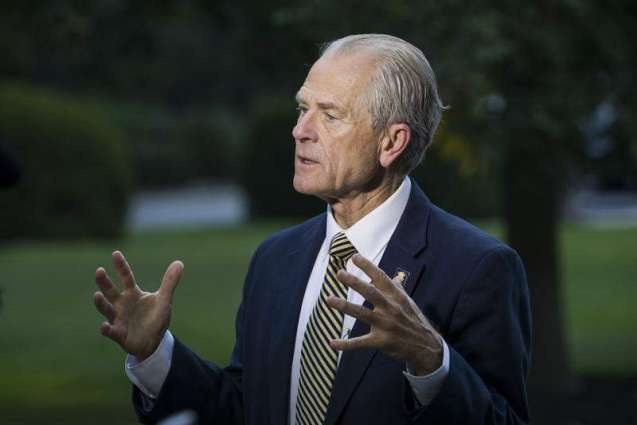China overstated details of a pending trade deal with the United States by claiming the two nations had agreed to remove some duties, but the Trump administration may be willing to delay next month's implementation of new tariffs, White House Trade Adviser Peter Navarro said in an interview on Friday
WASHINGTON (Pakistan Point News / Sputnik - 08th November, 2019) China overstated details of a pending trade deal with the United States by claiming the two nations had agreed to remove some duties, but the Trump administration may be willing to delay next month's implementation of new tariffs, White House Trade Adviser Peter Navarro said in an interview on Friday."What is on the table is, there's tariffs coming in December, December 15," Navarro told National Public Radio. "We would be willing to I think, again it's up to the president, to postpone those tariffs ... but not roll back any existing tariffs. That's the fine distinction here."
The proposed duties would apply to about $160 billion in new duties, primarily to imports of electronic goods.
Earlier in the week China announced that the US had agreed to lift some tariffs in the first phase of a series of trade agreements.
Navarro said China's statement came from the "propaganda ministry," and that Beijing was attempting to re-negotiate in public a handshake agreement reached in October.
Navarro said was not blaming China for doing anything untoward and that Beijing's strategy was not unusual.
Existing tariffs, he said, are a necessary defense against China's economic aggression against the United States.
Tariffs are the only insurance that China will come to the negotiating table and bargain in good faith, Navarro added. "If you give away any of the existing tariffs you run the very real risk that you will not get to phase two or three."
Without elaborating, Navarro said present negotiations only deal with the first two of seven key US objectives.
Trump, with broad-based support from both Democrats and Republicans, is seeking to cut China's annual trade deficit with the US of more than $500 billion, force Beijing to honor existing World Trade Organization rules and halt China's theft of American technology.




